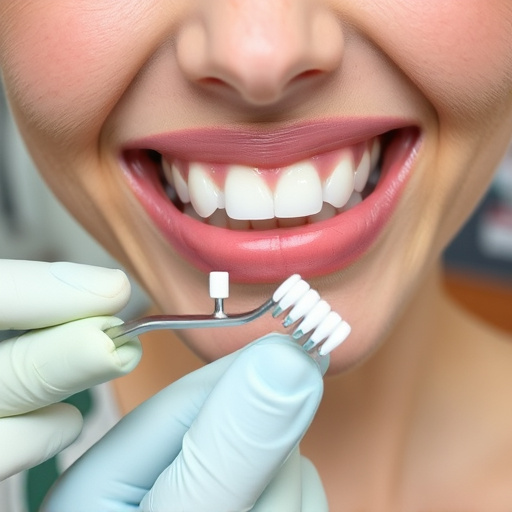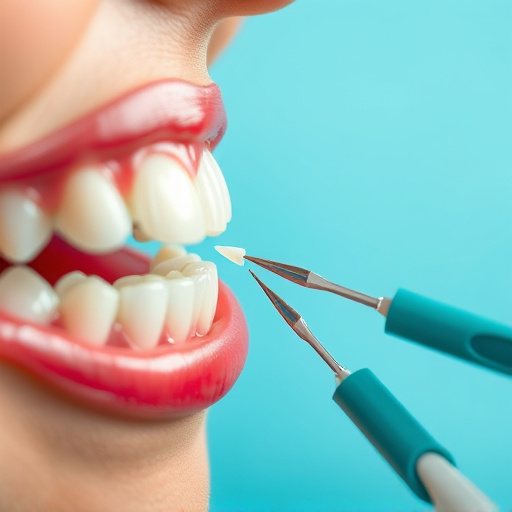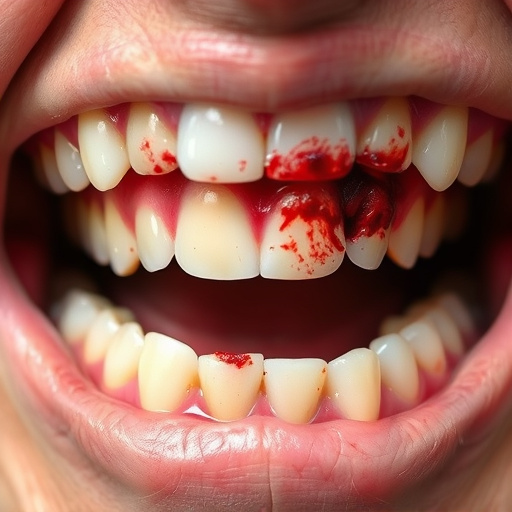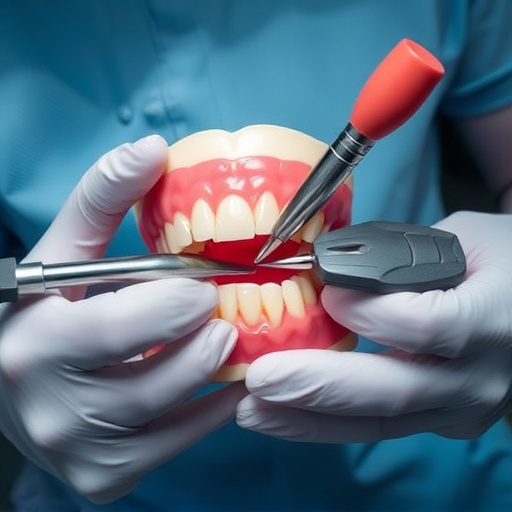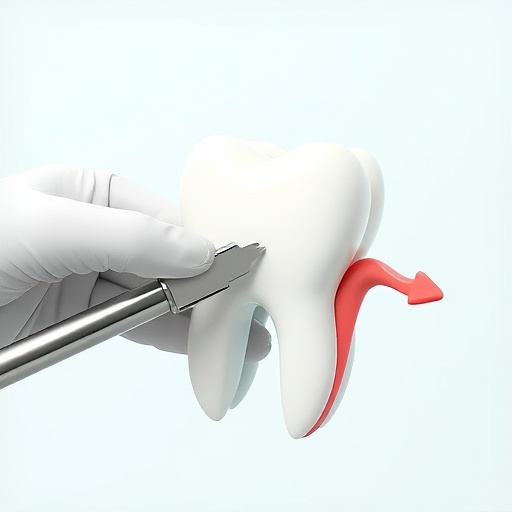Tooth sensitivity, caused by enamel wear exposing dentin and nerve endings, can be triggered by aggressive brushing, gum recession, acidic foods, or medical conditions. Symptoms include sudden sharp pains to hot/cold substances or certain foods. Treatment options range from desensitizing toothpastes and fluorides to wisdom tooth removal or restorative treatments for cracked teeth. Ongoing dental care, including regular brushing, flossing, a balanced diet, and routine checkups, is crucial for long-term relief and overall dental health.
Tooth sensitivity can cause excruciating pain, making even the simplest activities like eating or drinking unpleasant. But don’t let sensitive teeth dictate your lifestyle. This comprehensive guide explores effective tooth sensitivity treatment methods designed to provide lasting relief from hot and cold stimuli. From understanding the causes and symptoms to discovering a range of treatment options, you’ll gain insights into achieving and maintaining healthy, pain-free teeth.
- Understanding Tooth Sensitivity: Causes and Symptoms
- Exploring Effective Treatment Options for Sensitive Teeth
- Long-term Relief: Maintaining Healthy Teeth Post-Treatment
Understanding Tooth Sensitivity: Causes and Symptoms

Tooth sensitivity, a common dental issue, refers to the discomfort or pain experienced when teeth are exposed to hot, cold, sweet, or acidic substances. It’s more than just a fleeting sensation; it’s a signal that your tooth enamel has worn away, exposing the underlying dentin and its tiny tubes filled with nerve endings. This exposure makes teeth highly reactive to temperature changes and certain foods. While it might seem like an isolated problem, sensitive teeth can be caused by various factors, including brushing too hard, gingival recession due to gum disease or aggressive tooth-whitening treatments, enamel erosion from acidic foods and drinks, and even certain medical conditions.
Symptoms of tooth sensitivity often include sudden, sharp pain that can last for several minutes after consuming something hot or cold. It might also occur spontaneously without any external stimuli. In children’s dentistry, parents may notice their kids holding their teeth while eating or drinking, or they might complain about painful bites. Restorative dentistry offers various solutions for managing tooth sensitivity treatment, from desensitizing toothpastes and fluorides to more comprehensive procedures like dental fillings or crowns, depending on the severity of the case.
Exploring Effective Treatment Options for Sensitive Teeth

Tooth sensitivity can significantly impact a person’s quality of life, making even simple activities like enjoying a cold drink or eating ice cream painful. Exploring effective treatment options is crucial to alleviating this discomfort. One common approach involves using desensitizing toothpastes that contain ingredients like nitratemine or stannous fluoride, which help block the transmission of sensitivity signals from the tooth’s surface to its interior.
In more severe cases, dental professionals might recommend procedures such as wisdom tooth removal or emergency dental care to address underlying issues. For example, if a cracked tooth or exposed dentin is causing sensitivity, fillings or other restorative treatments can be used to seal and protect the affected area. By understanding these various treatment options, individuals with sensitive teeth can take proactive steps towards finding lasting relief from their discomfort.
Long-term Relief: Maintaining Healthy Teeth Post-Treatment

After successfully undergoing a tooth sensitivity treatment, it’s essential to understand that achieving long-term relief requires ongoing dental care. Maintaining good oral hygiene is paramount; this includes regular brushing and flossing to remove plaque buildup, which can contribute to tooth sensitivity recurrence. A balanced diet, avoiding sugary foods and drinks, can also help prevent further damage to teeth.
Additionally, scheduling routine dental checkups allows for early detection of any issues. Your dentist might recommend specific treatments or procedures based on your post-treatment oral health status, such as dental bonding or even dental implants, should the need arise. These measures ensure that not only is your tooth sensitivity addressed, but your overall dental health remains robust and stable over time.
Tooth sensitivity treatment offers a lasting solution to relieve discomfort from hot or cold stimuli. By understanding the causes and symptoms, exploring effective treatments like desensitizing toothpaste and professional procedures, and maintaining excellent oral hygiene, you can achieve long-term relief and enjoy a smile free from sensitivity. Remember, consistent care post-treatment is key to keeping your teeth healthy and sensitive-free.








